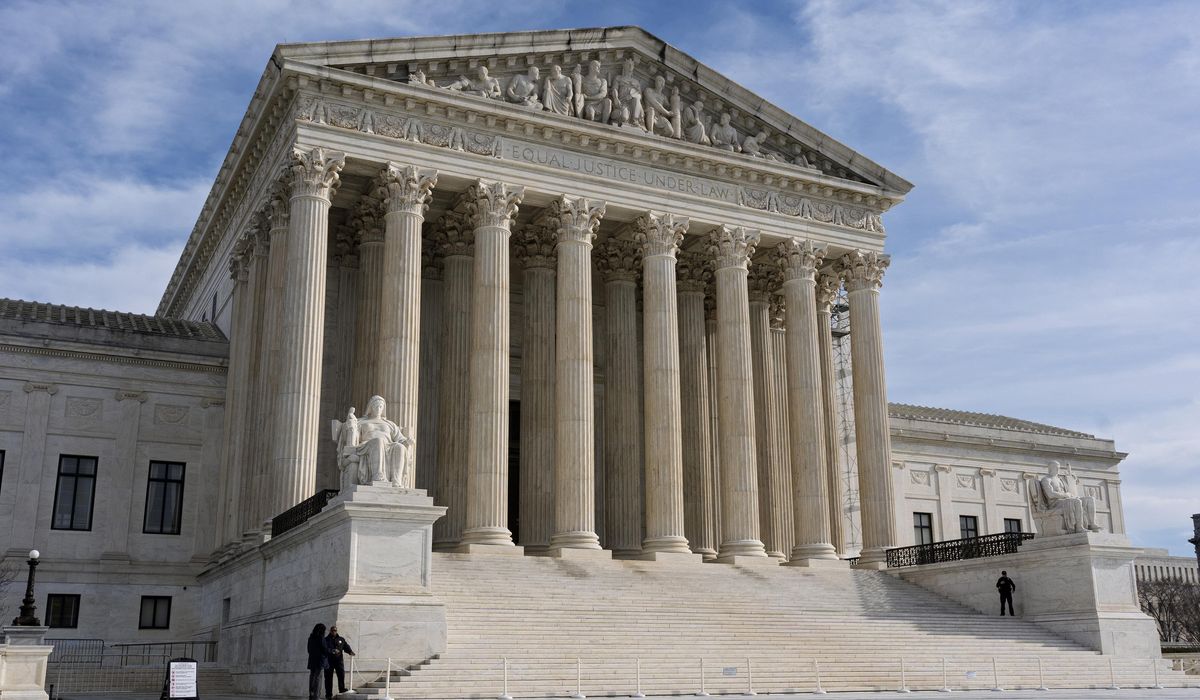


The Supreme Court issued a ruling Thursday that narrows the window for illegal immigrants to appeal their looming deportations to federal appeals courts.
The justices said in the 5-4 ruling that the clock for appealing starts ticking once an illegal immigrant is given a final order of removal and it doesn’t reset.
Pierre Riley, an illegal immigrant from Jamaica, had argued the appeals clock should restart if he later wants to challenge the specific country he is going to be deported to, but the high court said that’s not how the law reads.
Justice Samuel A. Alito Jr., writing for the majority, said the law sets a 30-day window for an illegal immigrant to appeal a “final order of removal.”
The law doesn’t define exactly what that means. Still, Justice Alito said Supreme Court precedent makes clear it has to be the initial deportation decision by the immigration courts, not the extended wrangling that sometimes follows over which country someone can actually be sent to.
“An order denying relief under the [Convention Against Torture] is not a final order of removal and does not affect the validity of a previously issued order of removal or render that order non-final. That teaching dooms Riley’s argument here,” Justice Alito wrote.
The case gets at the labyrinthian rules governing immigration and deportation cases, which are getting a very public airing right now as President Trump seeks to ramp up removals.
Riley’s status as a convicted drug dealer made him deportable. An immigration judge issued a removal order for him to be sent back to his home country, Jamaica.
But under the Convention Against Torture, migrants can challenge deportation to a specific country where they face the possibility of torture or persecution. Riley argued that a Jamaican kingpin would try to kill him if he were sent back.
A Homeland Security officer reviewing his case ruled against him, but an immigration judge disagreed and ruled that Riley couldn’t be deported to Jamaica. The Board of Immigration Appeals then overturned that ruling.
Riley appealed that rejection to a federal circuit court of appeals.
But the high court majority said Thursday that the appeal had to come after the initial deportation order, not the wrangling over torture and withholding of removal to a specific country.
Justice Sonia Sotomayor, writing the dissent for the court’s three Democratic appointees and Justice Neil M. Gorsuch, a Trump appointee, called the decision “illogic and absurdity.”
She said it will create needless appeals as illegal immigrants challenge their deportations just to preserve their chance to appeal a later withholding of removal rejection. She said that’s one reason why even the government agreed with Mr. Pierre — and the justices had to appoint a special lawyer to argue the case against Riley.
“Today’s decision is the rare holding that benefits no one,” Justice Sotomayor said.
The court did rule that a lower court was wrong in dismissing Riley’s appeal out of hand for lack of jurisdiction. The justices sent the matter back for more argument on that.
• Stephen Dinan can be reached at sdinan@washingtontimes.com.
